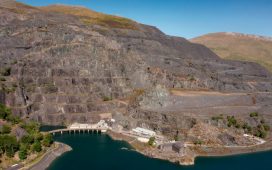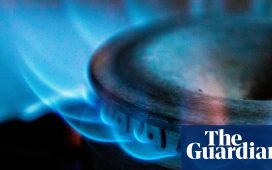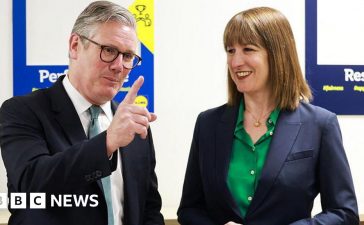Receive free UK energy updates
We’ll send you a myFT Daily Digest email rounding up the latest UK energy news every morning.
UK regulators have approved the development of the vast Rosebank oilfield in the North Sea, sparking immediate objections from climate campaigners.
The North Sea Transition Authority on Wednesday gave the go-ahead to Norway’s state-backed Equinor and its partner Ithaca to develop the Rosebank oil and gas project, about 80 miles off the coast of Shetland.
Development of the Rosebank field has become a focal point of the climate debate in the UK, pitting environmentalists against Conservative prime minister Rishi Sunak as he emphasises energy security and affordability over green ambitions.
Sunak on Tuesday welcomed the licence approval, calling it “the right long-term decision for the UK’s energy security”.
His comments reinforced a marked shift in tone in recent weeks as the Conservatives aim to create distance between themselves and the opposition Labour party ahead of a general election expected next year.
Equinor estimates it will be able to produce about 300mn barrels of oil from the project over its lifetime, the equivalent of roughly three days of global demand.
However, Phil Evans, Greenpeace’s UK climate campaigner, said the decision was “carte blanche to fossil fuel companies to ruin the climate”.
The decision comes a week after Sunak diluted policies designed to help the UK meet its targets to cut greenhouse gas emissions, saying he wanted to take a more “pragmatic” approach.
He delayed the planned ban on new pure petrol and diesel cars from 2030 to 2035 and said about a fifth of households would be exempt from having to switch from fossil fuels for home heating after 2035.
The move caused concern, including from some of his own MPs such as Sir Alok Sharma, president of the UN’s international COP26 climate change conference when it was hosted by the UK in Glasgow in 2021.
Sharma wrote on X, formerly known as Twitter, last week that he was “concerned about fracturing of UK political consensus on climate action”. The Reading West MP said on Wednesday that he did not plan to stand again in the next general election.
Claire Coutinho, energy secretary, said that her Conservative party would not “play politics” with energy security and argued that fossil fuels were still needed in the medium term despite Britain’s attempts to decarbonise.
“Even the independent Climate Change Committee has said that in 2050, we will need oil and gas for a quarter of our energy,” she said.
The opposition Labour party confirmed it would honour the licence for Rosebank if it wins the election but stop new oil and gas extraction licences because of concern over greenhouse gas emissions, drawing opposition from the GMB Union, one of its largest donors, which is concerned about job losses.
Neil Gray, Scotland’s energy secretary, said the government in Edinburgh was disappointed that Rosebank was approved without addressing its concerns that most of the oil extracted would be exported and “not necessarily contribute to our domestic energy security”.
Gilad Myerson, executive chair of Ithaca Energy, Equinor’s minority partner on the Rosebank project, said the company had held conversations with all the major political parties in the UK, including Labour.
“Most people acknowledge there will be demand for oil and gas well into the 2050s and beyond,” Myerson said. “The UK has a choice to make: it can either produce its own oil and gas or it can import . . . [producing your own] gives higher energy security, lower CO₂ per barrel, more jobs and a stronger economy.
“Whether it is Labour or Conservative we believe that the people in power will put together a fiscal regime to be supportive of the industry.”
However, Caroline Lucas, Green MP, said: “We know that the climate emergency is getting more and more serious.
“No one is suggesting turning off the taps of oilfields immediately. What we are saying is that locking ourselves in to get more oil and gas at a time when we know we should be phasing it out, is reckless.”
This week, the International Energy Agency repeated a warning, first given in 2021, that no new oil and gasfields were needed if the world was to meet its target of net zero carbon emissions by 2050.
It added that new oil and gasfields faced “major commercial risks” if the required cuts to demand for oil were made, given supplies from existing projects.
Shares in Ithaca Energy rose 9 per cent on Wednesday morning in London, to 177.8p, while Equinor rose 1.6 per cent.
Additional reporting by Jim Pickard











